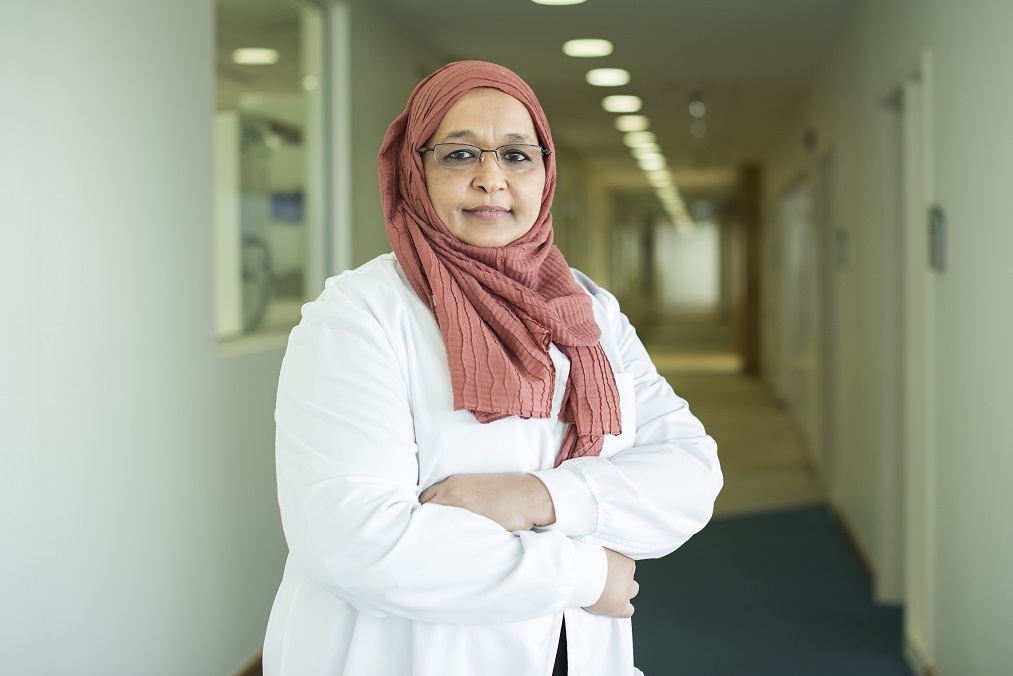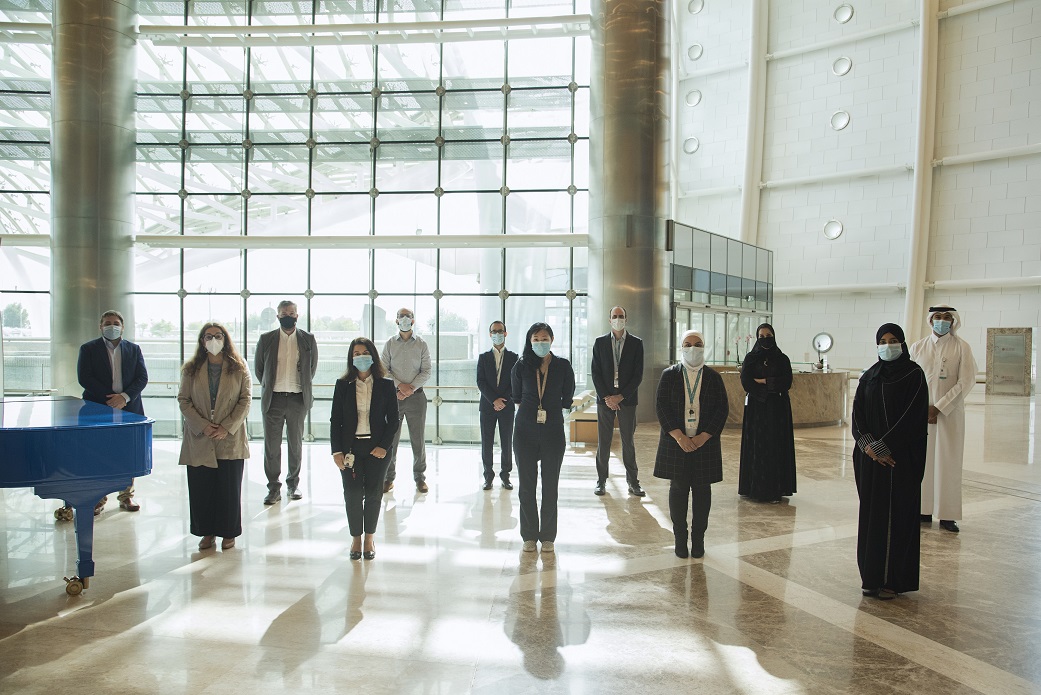PMFG 2020 Highlights Qatar’s ability to tackle pandemics like COVID-19
9 December 2020, Doha, Qatar – Sidra Medicine concluded its virtual “Precision Medicine and Functional Genomics 2020” (PMFG 2020) symposium with key sessions related to the implementation of precision medicine solutions to advance patient care and the readiness to tackle pandemics such as COVID-19. For a visual highlight of Qatar’s precision medicine efforts, please watch this video here.
Over 50 renowned speakers from the research, clinical, biotechnology fields spoke at PMFG 2020; which attracted an online audience of more than 250 local and international scientists, researchers and medical professionals.
Dr. Khalid Fakhro, Chief Research Officer at Sidra Medicine said: “I would like to take the opportunity to thank everyone from our speakers, attendees, partners as well as sponsors and organizers who made our first ever virtual edition a success. It was a privilege for us to connect with a global network of peers and colleagues who are all committed to finding innovative research-driven solutions that will transform patient care as well as address dynamic real-world problems like the current COVID-19 pandemic.”
Highlights of the symposium included keynote speaker, Professor Sir Mark Caulfield, Chief Scientist at Genomics England, discussing the 100,000 Genomes Project and the impact of such large scale discoveries on transforming patient care. He also reflected on the partnership of Genomics England with Qatar Foundation and stressed on the significance of such collaborations. For example, around 5,000 National Health Service (NHS) staff from the United Kingdom including researchers from Qatar are involved in working with the project participants.
Shedding light on the collaboration between Qatar Genome Programme, Qatar Biobank, Sidra Medicine and Weill Cornell Medicine-Qatar regarding Qatar’s first Gene Chip (Q-Chip), Professor Ronald G. Crystal, Chairman of the Department of Genetic Medicine at Weill Cornell Medicine in New York explained how the project allows for the rapid identification of individuals who are carriers for Mendelian (genetic) diseases in the population.
Such identification methods are a key part of Qatar’s precision medicine program, as they allow to significantly improve the genetic diagnosis of a large number of diseases. Unlike the genetic results that come from international laboratories abroad or gene assays developed using data from other populations, diagnosis using the Q-Chip is based on genetic information derived from Qataris, making the results obtained more relevant and accurate. It will also allow for families to obtain genetic counseling and make more informed decisions regarding their health and wellbeing and for family planning.
Continuing on the session on precision medicine implementation programs, Professor Stephen Scherer, Director of the McLaughlin Centre and the Centre for Applied Genomics, The Hospital for Sick Children (SickKids) in the University of Toronto, Canada, discussed how precision medicine and the science of genomes is unlocking the secrets behind Autism. Professor Scherer highlighted the ongoing collaboration of Qatar National Research Fund, Sidra Medicine and SickKids through the BARAKA study to sequence and characterize 1,000+ patients with Autism Spectrum Disorder in the coming year.

Dr. Amel Hassan, Senior Attending Physician at Sidra Medicine said during her discussion on precision medicine transforming the lives of children with Primary Immunodeficiency: “Physicians resort to genetic testing when patients do not react well to classic treatments. If results show a change in a specific gene causing the illness, we carry on studying the function of the gene causing the illness as well as the treatment using precision medicine. This is a practice that will enable pediatricians to start the treatment earlier and reduce the suffering of not only the patients but their families as well. I am proud to work for a healthcare organization like Sidra Medicine that is building and developing that concept into its patient care and treatment programs in Qatar.”
PMFG 2020’s COVID-19 session was a hot topic, highlighting the global response to the pandemic and vaccines. Professor Laith Abu Raddad, Professor of Infectious Disease Epidemiology from WCM-Q and Director of the World Health Organization (WHO) Collaborating Center for Disease Epidemiology Analytics in Qatar indicated that Qatar’s proactive and swift response has prevented a second wave now for more than six months after the first wave and so far there is no sign of a second wave emerging. He elaborated that due to the successful containment of the virus as well as early public health planning and interventions, Qatar was in a strong position in being able to successfully protect its population from a second wave and is now looking into the future with ambitious plans for vaccination to emerge from the pandemic and return to normality.
Dr. Khalid Fakhro, CRO at Sidra Medicine continued: “The impact of Qatar’s investment in research and healthcare really came to the forefront during the pandemic. Not only were we in a position that we could mobilize our research efforts to support the country’s testing requirements at Sidra Medicine but we also developed our own new testing methods highlighting resource and cost efficient ways to manage large scale testing. This speaks to not only the readiness of the country in tackling pandemics like COVID-19 but also the level of expertise and commitment within the scientific community in advancing the national healthcare and precision medicine agenda.”
PMFG 2020 conference co-organizers Dr. Damien Chaussabel and Dr. Bernice Lo from Sidra Medicine said: “PMFG 2020 announced 50 highly competitive abstract submissions at PMFG 2020, six of which were selected for oral presentations. Sidra Medicine is committed to encouraging a culture of education and growth and we would like to acknowledge the trainees who attended the symposium this year, and we hope that they found the experience educational and insightful.”


